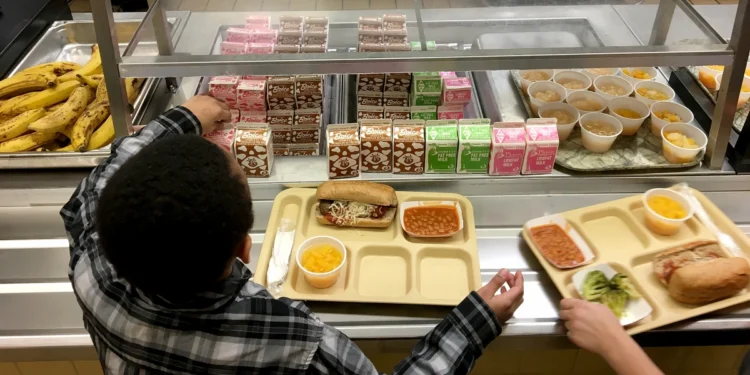Colorado voters on Tuesday passed Propositions LL and MM by wider margins than 2022’s Proposition FF, which first created the Healthy School Meals for All (HSMA) program, thus subsidizing “free” lunch for all school kids regardless of a family’s ability to pay.
The grim decision by so many Coloradans to force the few to carry the burden of the many is, unfortunately, becoming the new status quo.
The state’s central planners will feel emboldened as they work bring a so-called “progressive” income tax to voters next year.
What was at stake
As Jake Fogleman and I previously explained, Propositions LL and MM were created to rescue an illogical and unsustainable universal school meal program by taxing wealthier Coloradans.
Despite what the taxpayer-funded campaigns led voters to believe, students would not starve had voters rejected the two ballot measures.
Instead, kids in need of assistance would have continue to receive free lunches, as Colorado had already committed to funding before Proposition FF even created the HSMA program in 2022.
Unintended consequences
Unfortunately, many voters who supported the measure in the name of making the wealthy pay their “fair share” likely do not realize that they have just approved a future tax hike on themselves, even if they currently do not meet the $300,000 threshold in 2025.
The HSMA program is not indexed to inflation, meaning that as wages rise, an increasing number of people will cross the $300,000 nominal threshold.
The problem, however, is that $300,000 in ten years will have significantly less purchasing power than it does today.
This is already evident when comparing the program as it was first created in 2022 to its current state in 2025, only three years later. In 2025, someone earning $300,000 only has the purchasing power of someone making $274,253 in 2022.
Given enough time, then, many more Coloradans will be pouring money into HSMA despite not being all that wealthy when adjusted for inflation, and despite most kids not needing assistance.
Meanwhile, the politicians who created the program will have long since left office.
Laying the groundwork
As I have also previously explained, LL and MM are a preview for next year’s push for a “progressive” income tax.
By convincing voters to increase taxes only on the wealthy via LL and MM, progressives will certainly feel emboldened to keep chipping away at Colorado’s fair tax system and the Taxpayer’s Bill of Rights (TABOR), despite the state already declining in national tax competitiveness rankings.
The proponents of the “progressive” tax will make the same catastrophizing claims, the same chimeric promises, and when their flawed policies exacerbate Colorado’s slide into economic decline, it will continue to be Coloradans’ fault for not giving state government enough of their money.










